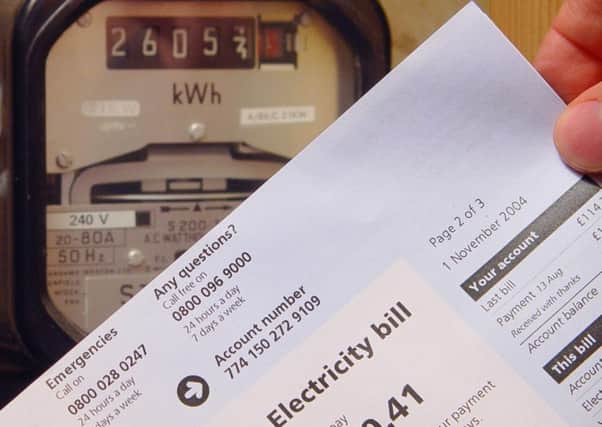Jeff Salway: Power switch fails to keep big six in check


But go easy on the sympathy, because it’s not the energy supply business letting the side down. On the contrary, British Gas continues to reap the rewards of a time-worn approach that the big six energy suppliers show no sign of getting bored of – fleecing their most loyal customers.
And for all the bad press and the threats of regulatory action, it’s a strategy they will continue to get away with for years to come.
Advertisement
Hide AdAdvertisement
Hide AdThe wholesale price of fuel, which accounts for almost half your energy bill, has plunged over the past two years. Your bill might have come down significantly too, but only if you’ve either switched to a different provider. The big six, so quick to hike prices when wholesale costs rise, suddenly find other expenditure to worry about when those costs fall.
The pathetic cuts announced over the past few weeks are as cynical as it gets, not least because they don’t take effect until winter is over. It’s noticeable too that even though wholesale electricity costs have fallen by more than a third, the latest cuts are to gas prices only, and typically limited to the expensive standard tariffs paid by households least likely or able to take action (including the elderly and those without internet access).
In July 2014 the market was referred by Ofgem to the Competition and Markets Authority (CMA). If the market was competitive, there would be more price cuts, their extent (and timing) would vary between supplier and they would bear at least some relation to underlying costs.
The CMA’s provisional report last summer estimated the big six were overcharging households by £1.2 billion a year, but unofficial estimates put it closer to £3bn.
But its focus on switching rather than profiteering ensured it was met with relief by the big six, as was the Conservatives’ general election victory. They donated more than £2.6m to the party during the last parliament. They’re getting value for money from that investment, under a government that in recent months has slashed investment in green energy but taken no action against energy suppliers.
The Tories profess to be so concerned about household energy bills that they’ve attacked “green” expenditure on onshore wind subsidies, rooftop solar power, zero-carbon targets and tax breaks for renewables projects. But none of these subsidies have any great impact on your energy bill, no matter what the energy cabal and their pals in Downing Street say.
Don’t hold your breath for the CMA to put things right though. The oft-cited comparison with the banking sector, where the CMA is looking at the current account market, applies again here. In both instances it focuses too much on consumer behaviour, such as switching, and not nearly enough on supplier behaviour.
Switching is still the only real option open to households, and one that more should take advantage of. But high and unfair pricing is just the symptom. Unless the underlying causes are addressed – governance, transparency, structure, culture and long-term energy needs – nothing in energy supply or banking will really change.